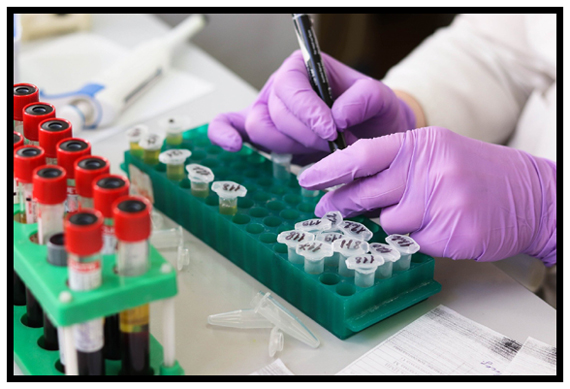Are Blood Tests Important?
Column #356 July 1, 2022
Some folks don’t realize they can’t judge the true state of their health without at least some analysis. Young folks in particular don’t give their health much of a thought—mostly because they feel healthy and can run circles around the old folks. Yet it may be more important for them to do some analysis than it is for their elders. Ignoring a problem that can grow and fester over time is never a good idea. On the other hand, there are many people who go overboard with doctor visitations. Usually they don’t get a proper analysis and/or don’t follow the professional advice. Of course, professional advice can vary. Not all health professionals are professionals and students of their trade.
I can name a lot of things that require analysis and monitoring. For instance machinery, electrical systems, waterworks, traffic patterns, weather, structural stresses, cost analysis, human psychology, education, and more can impact us negatively if we don’t monitor them. Obviously, if our life in general and other aspects of our environment need monitoring, our health does too.
Health Benefit put it this way: “Blood tests play a vital role in figuring out the best medical intervention to treat the signs and symptoms of a particular disease. Through complete blood count (CBC), platelet count, glucose test, blood clotting test, allergy test and other types of blood tests, your doctor can confirm the real cause of your medical condition for prompt medical treatment and your peace of mind.”1
Blood tests work on many levels. Many of them analyze a body’s nutrient balances which can only be determined through laboratory analysis. Last week the Visual Capitalist came out with a graphical pictorial of “The Elemental Composition of the Human Body.” It summed up the importance of relative nutrient balances this way: “Of the 118 elements on Earth, just 21 of them are found in the human body. Together, they make up the medley of divergent molecules that combine to form our DNA, cells, tissues, and organs.”2
Some of the nutrients that our bodies require, such as oxygen, carbon, and hydrogen, make up more than 94% of our needs. On the other hand, elements such as selenium, chromium, and cobalt are needed in very minute quantities—virtually only trace amounts. There are 97 additional elements that our bodies do not need and many of them are highly toxic. Yet under certain circumstances quite a few of them can end up in our bodies. It’s also true that any element in excess can be toxic to our bodies.
Primarily blood tests are not focused on elements. Most provide information on the quantities or relative quantities of various substances in the body. This can range from vitamin levels, blood composition, cholesterol, antibodies, and more. For instance, for years I’ve been recommending “The Omega-3 Test” because many other blood tests do not test for the Omega-3 essential fatty acid (EFA) deficiency. The Omega-3 EFA deficiency is determined by the ratio of Omega-6 EFAs to Omega-3 EFAs. When the ratio exceeds 4:1, that’s borderline deficient. Ratios from 1:1 to 2:1 are much preferred.3 4
Although skin testing is the preferred method for detecting allergies, blood tests can detect them too. As WebMD explains, “Allergy blood tests usually screen for at least 10 of the most common allergy triggers, including dust, pet dander, trees, grasses, weeds, and molds related to where you live. They are also particularly helpful in diagnosing food allergies.”5
Blood tests are used for detecting cancers, although generally they actually can’t diagnose particular cancers. The Mayo Clinic describes these blood tests this way. “. . . they can provide clues that may lead your healthcare team to make the diagnosis. For most types of cancer, a procedure to remove a sample of cells for testing is often needed to be sure.” A CBC test measures the amount of each type of blood cell in a sample and it can find blood cancers. There’s a test that looks at the blood proteins to find the ones made by your body's germ-fighting immune system. It is helpful in diagnosing multiple myeloma. Then there’s a test to find the chemicals made by cancer cells.6
Blood tests are necessary for folks using blood thinners who also supplement with fish oil. The recently deceased Dr. Stephen Sinatra, who was a famous cardiologist that specialized in nutritional supplementation and nutrition, said: “If you find that fish oil causes your blood to thin too much, use it as an opportunity to ask about reducing the dosage of your prescription blood thinner. But don’t give up your fish oil, unless you absolutely have to. The benefits are simply too great to forego.”7
What he referred to is that there are big health advantages by avoiding an Omega-3 deficit. Therefore if you have a platelet count that’s already in the low end of the preferred platelet count range, it’s better to reduce the dosage of your prescribed blood thinner than it is to reduce your Omega-3 supplementation. This is just one more example of why a blood test is so important. Without measuring you are clueless. It also underscores the importance of having a doctor who understands more than just prescribing drugs and operations.
Having regular blood tests can be like flying an airplane in the clouds on instruments. When instruments are rigorously monitored, a pilot can easily keep the airplane on the level. But when flying by the seat of one’s pants, the average time between the onset of no instrument or horizon references and loss of control is 178 seconds. Of course we don’t need blood tests every 178 seconds, but we do need them often enough to make sure we’re on the right track.8
We are what we ingest along with what diseases, toxins, and stress come our way. Therefore conditions can slowly change and not always for the better.9 10
To your health.
Ted Slanker
Ted Slanker has been reporting on the fundamentals of nutritional research in publications, television and radio appearances, and at conferences since 1999. He condenses complex studies into the basics required for health and well-being. His eBook, The Real Diet of Man, is available online.
Don't miss these links for additional reading:
1. Why Blood Tests Are Important For Diagnosis from HealthBenefit55
2. The Elemental Composition of the Human Body by Mark Belan, Anshool Deshmukh, and Clayton Wadsworth from Visual Capitalist
3. The Omega-3 Test from Lipid Technologies (This special link provides an even better discount when “slanker” is entered in the Offer Code box.)
4. Ted Slanker’s Omega-3 Blood Test
5. Blood Testing for Allergies by Kelli Miller from WebMD
6. Cancer Blood Tests: Lab Tests Used in Cancer Diagnosis by Mayo Clinic Staff
7. Is It Safe to Mix Fish Oil and Blood Thinners? by Stephen T. Sinatra, M.D.
9. The Importance of Blood Tests from Abbot Labs
10. All About Blood Tests Medically reviewed by Lauren Castiello, MS, AGNP-C — by Tim Jewell and Alina Sharon from Healthline Media




